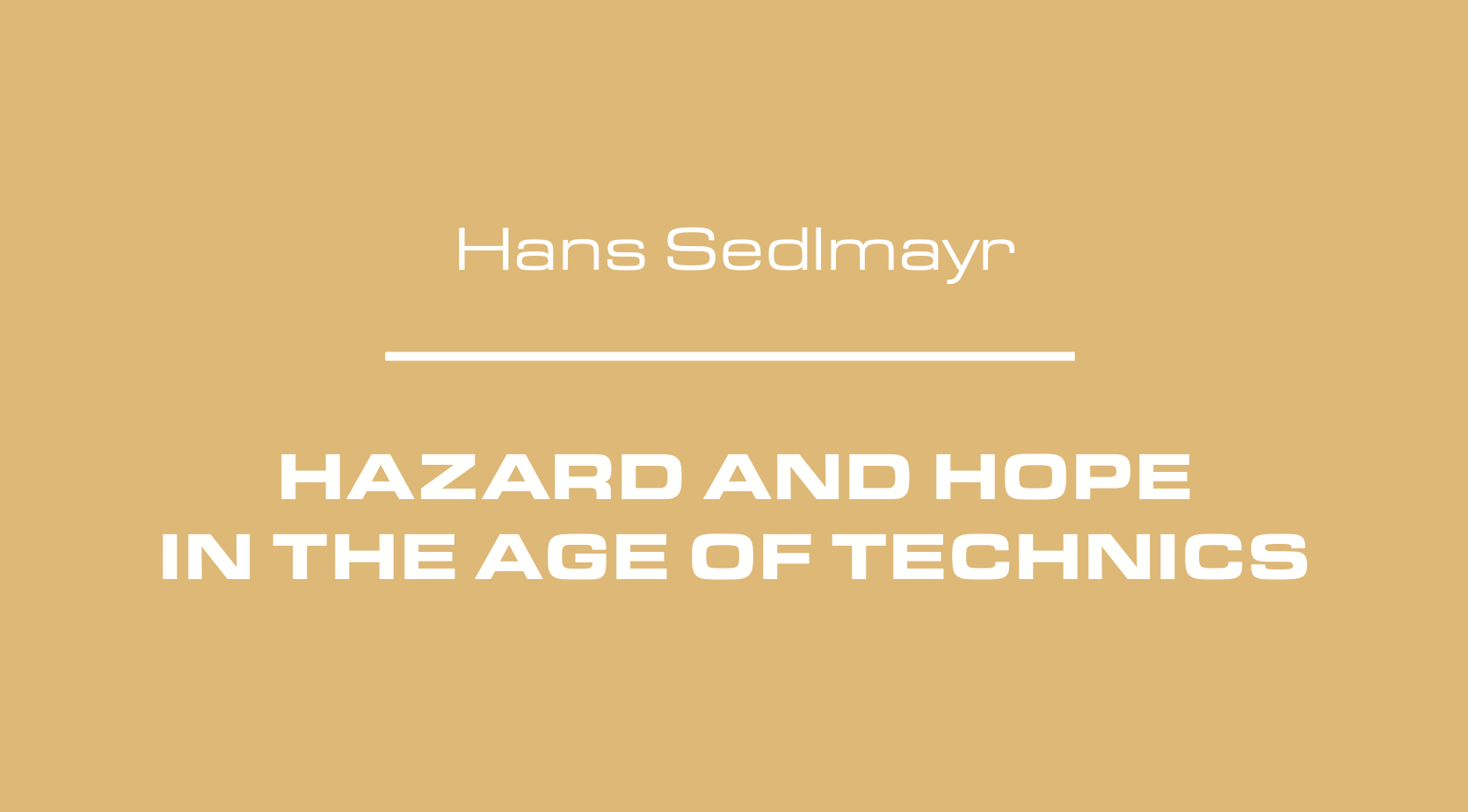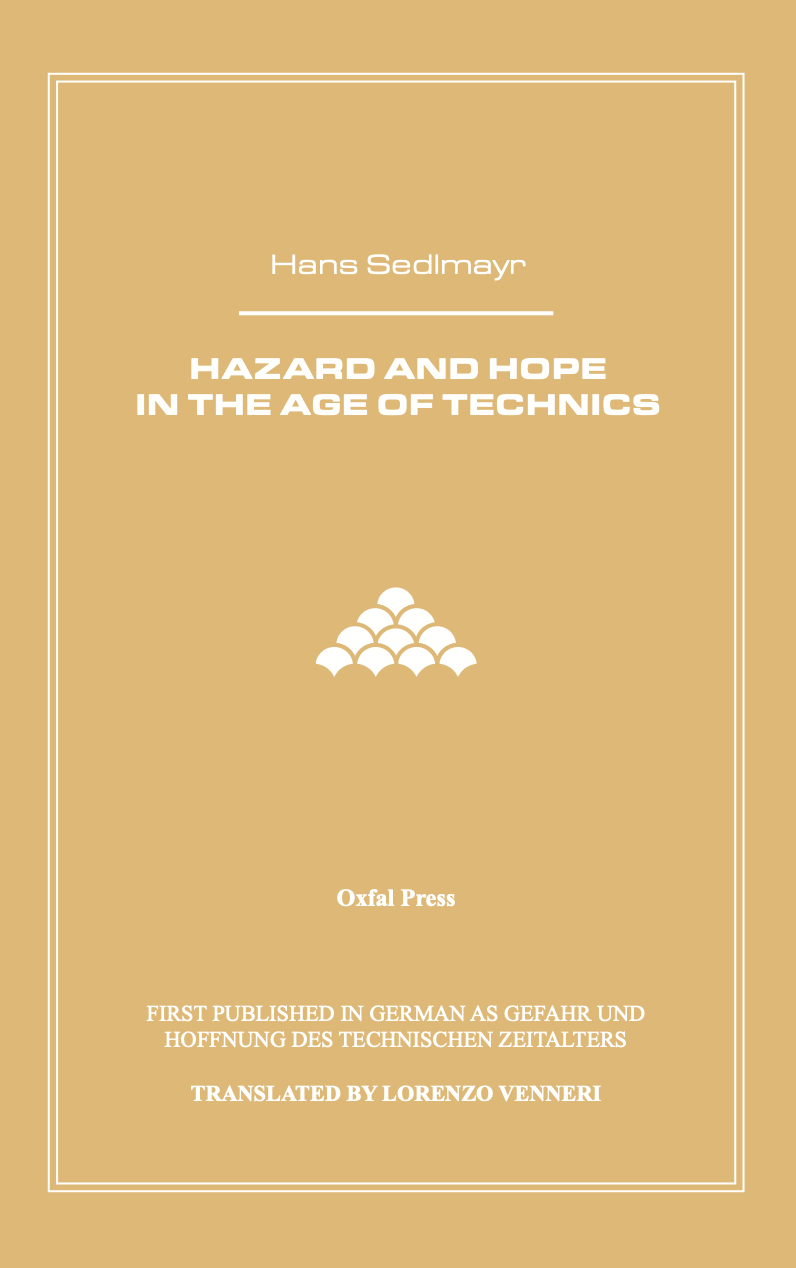
Book translation - Hazard and Hope in the Age of Technics
I finished translating Hazard and Hope in the Age of Technics, a booklet by Hans Sedlmayr first published in 1970. It was brought to my attention by my aunt, Giovanna De Lorenzi, retired Professor of Art History at the University of Florence, who studies and reintroduces the works of some of the most interesting thinkers including Hans Sedlmayr, Wladimir Weidlé, Ugo Ojetti, Nicolas Berdyaev, etc.
When I first read her Italian translation, it felt like I was reading a book I'd like to have written. And so instead of writing something similar, I chose to translate his work to English and prepend a lengthy foreword. I hope that some of my friends will read it and find some value as I did. Maybe it will steer some towards a more modest approach to technology that raises rather than degrades the human being.
The book is a prescient perspective on technology and the human being that I believe is needed in these times of accelerating technological change. While there is tremendous opportunity to improve society and the environment, there is nowadays a clear and rising response against the unmitigated application of technology to all spheres of life, which has degraded the human being and given rise to the various crisis of our time from the architectural horrors of our cities and modern art to the various crises in meaning, education, and health.
The book will resonate with readers of Neal Postman (The Typographic Mind), Lewis Mumford (Technics and Civilization), Günther Anders (Man is Antiquated), Samuel Butler (Erewhon), George Dyson (Darwin Among the Machines), Wolfgang Giegerich (Technology and Soul), Thomas Carlyle (Signs of the Times), Bernard Stiegler, Jan Huizinga (In the Shadow of Tomorrow), Chantal Del Sol (Icarus Fallen), Nicolas Berdyaev (various works), and Aleksander Solzhenitsyn (various works).
Essentially every intellectual since Francis Bacon has had to form views on the matter of technics, taking a rough position on the spectrum between the nostalgic humanist and the hubristic Promethean. Sedlmayr’s techno-optimism is a strong and optimistic counterpoint to the transhumanist and techno-naive ideologies that now occupy the minds of many groups and thinkers. I am speaking of the now common books on artificial intelligence and technological progress and pieces in the vein of Yuval Noah Harari’s Homo Deus, Stanislaw Lem’s Summa Technolgie, Steven Pinker’s Enlightenment Now or the litany of recent titles regarding AI and techno-acceleration.
The book is available at various bookstores from Oxfal Press.
